## Metadata
- Real Title:: [African Societies Have H...](https://twitter.com/_alice_evans/status/1474013510095056904)
- Author:: [[Alice Evans]]
- Via::
- Publication-Date::
- ReadwiseID:: 12600698
- Last Highlighted:: 2022-01-03
- Imported: 2022-06-02 from twitter
## Highlights
### id265960338
> African societies have historically respected women’s authority, spiritual power, physical strength, & moral judgement. Their cosmology upholds gender complementarity.
> The most fascinating book I’ve read all year, by @NwandoAchebe
> Buy it, and be enraptured!
> 
> 
- [View Tweet](https://twitter.com/_alice_evans/status/1474013510095056904)
### id265960339
> How can we know what African gender relations were like hundreds of years ago?
> Study language, songs, oral traditions, cosmology, and folklore!
> 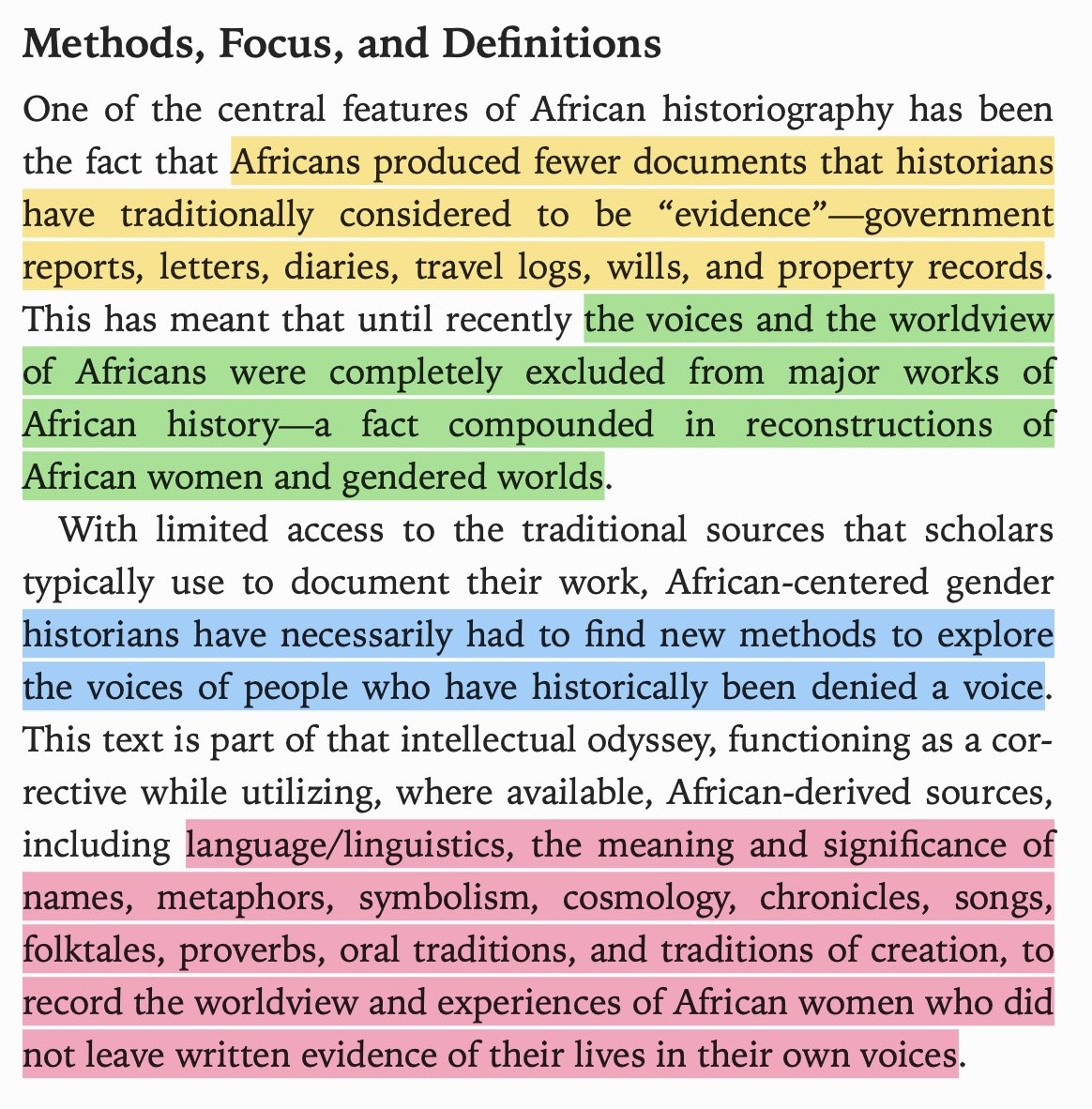
- [View Tweet](https://twitter.com/_alice_evans/status/1474013517011464203)
### id265960340
> Yes, and let me add that coding by Michalopoulos & @Melanie_Xue suggests Sub-Saharan Africa’s folklore is exceptionally gender equal.
> https://t.co/zluvt7HLcQ
> 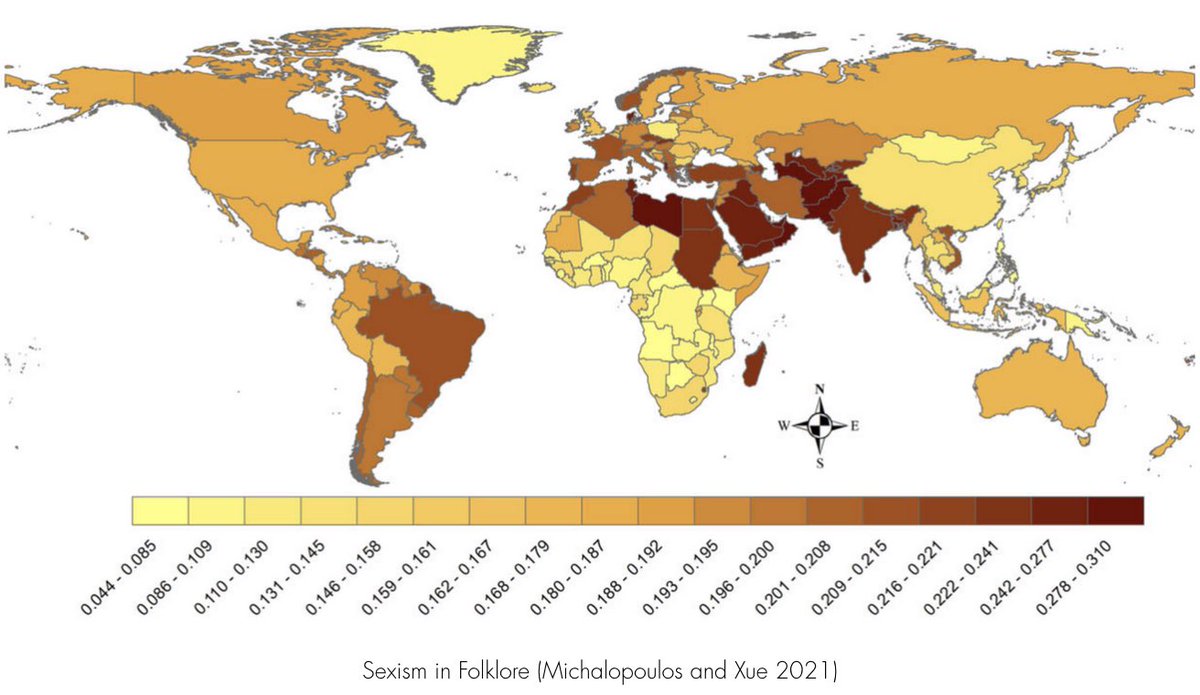
- [View Tweet](https://twitter.com/_alice_evans/status/1474013524691197961)
### id265960341
> Most African societies believe that the world was created by a genderless Creator God, some believe God is a woman, many emphasise “duality”.
> (Btw, relatively egalitarian Andean societies shared this ideology of “gender complementarity”, with cults to the Sun God & Moon Goddess)
> 
> 
- [View Tweet](https://twitter.com/_alice_evans/status/1474013530974306305)
### id265960342
> Great Gods were helped by female goddesses, who are often associated with fertility, rain & harvests
> (Strong parallels with Andean cosmology, eg Pachamama)
> (No goddesses of virginity?! That strongly contrasts with Ancient Greeks & Romans, who zealously policed female chastity)
> 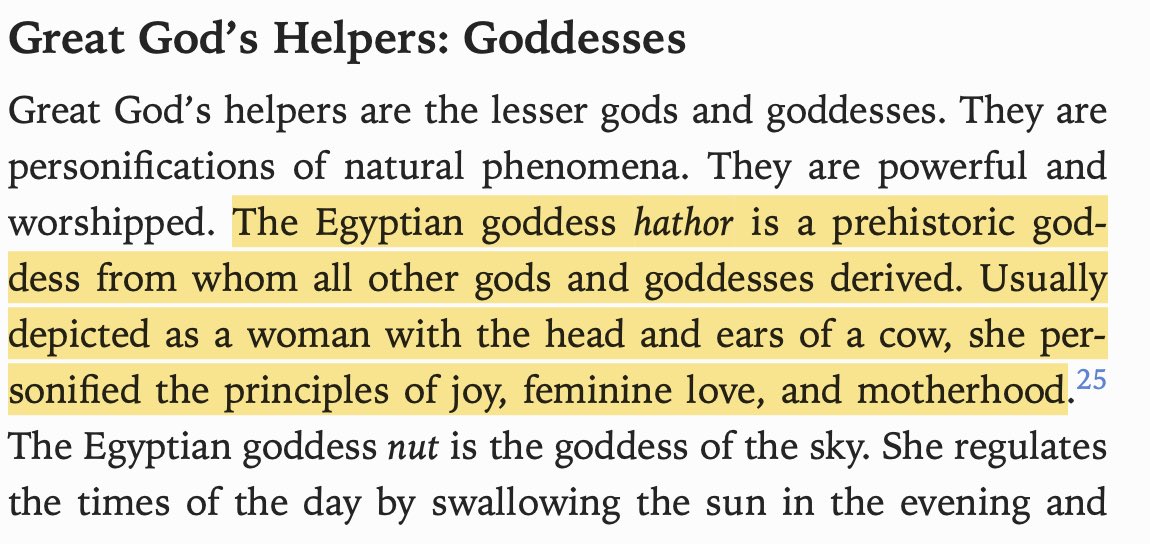
> 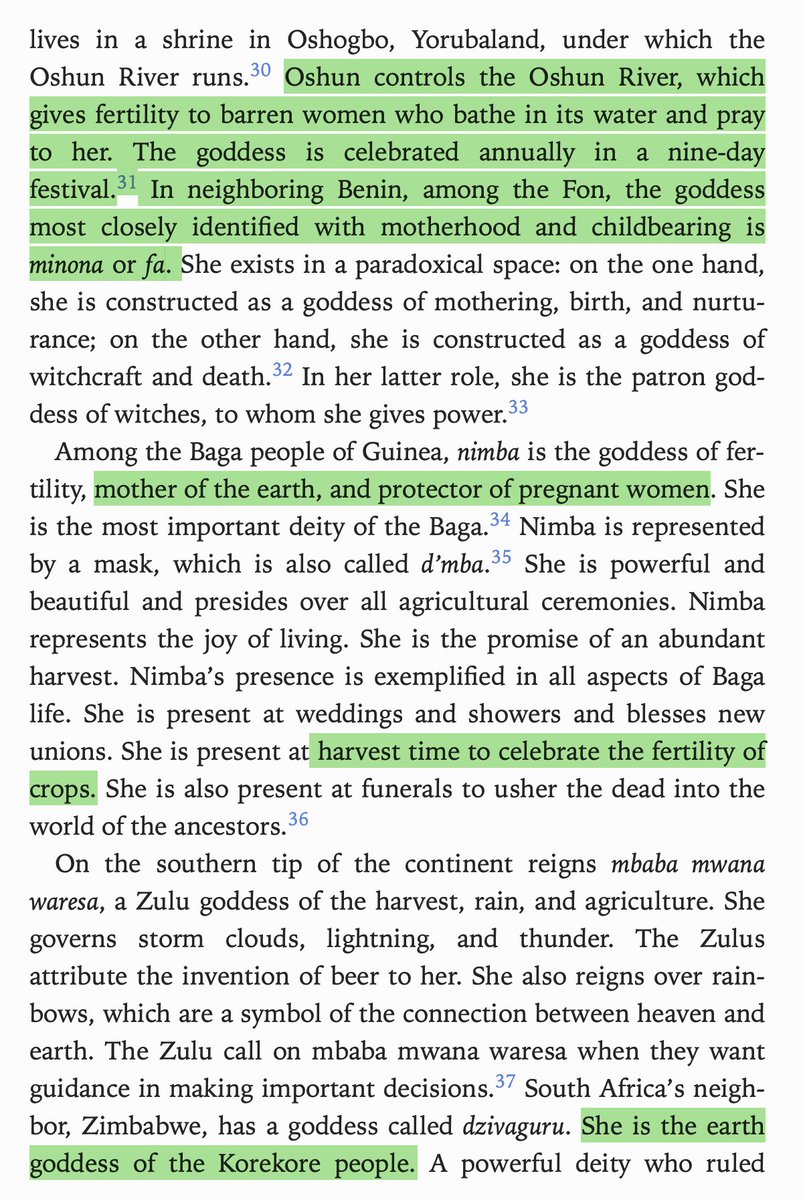
> 
- [View Tweet](https://twitter.com/_alice_evans/status/1474013537727090702)
### id265960343
> The spiritual and physical worlds exist in tandem,
> @NwandoAchebe presents evidence of revered female authorities at every level.
> (By contrast, there were NO female sages in Zoroastrianism, Hinduism, Islam, Judaism, Christianity, Confucianism or Daoism, afaik?)
> 
> 
> 
> 
- [View Tweet](https://twitter.com/_alice_evans/status/1474013545482395656)
### id265960344
> In eastern Nigeria, an all-powerful female oracle (ibiniukpabi) delivered judgements.
> 
> 
- [View Tweet](https://twitter.com/_alice_evans/status/1474013551748657154)
### id265960345
> When the people of Alor-Uno needed protection from slave-raiding, they used powerful *female* medicine: “adoro”, which was venerated to a deity.
> (This is a crucial metaphor, imo!! Militarism is NOT necessarily associated with masculinity; there were African female body guards).
> 
- [View Tweet](https://twitter.com/_alice_evans/status/1474013558098776064)
### id265960346
> In “Ten Thousand Years of Patriarchy”, I suggest that patriliny & patriarchal governance emerged with valuable inherited wealth (land/herds).
> BUT @NwandoAchebe suggests that in East Africa, women defied hierarchies & gained influence as spirit mediums!
> 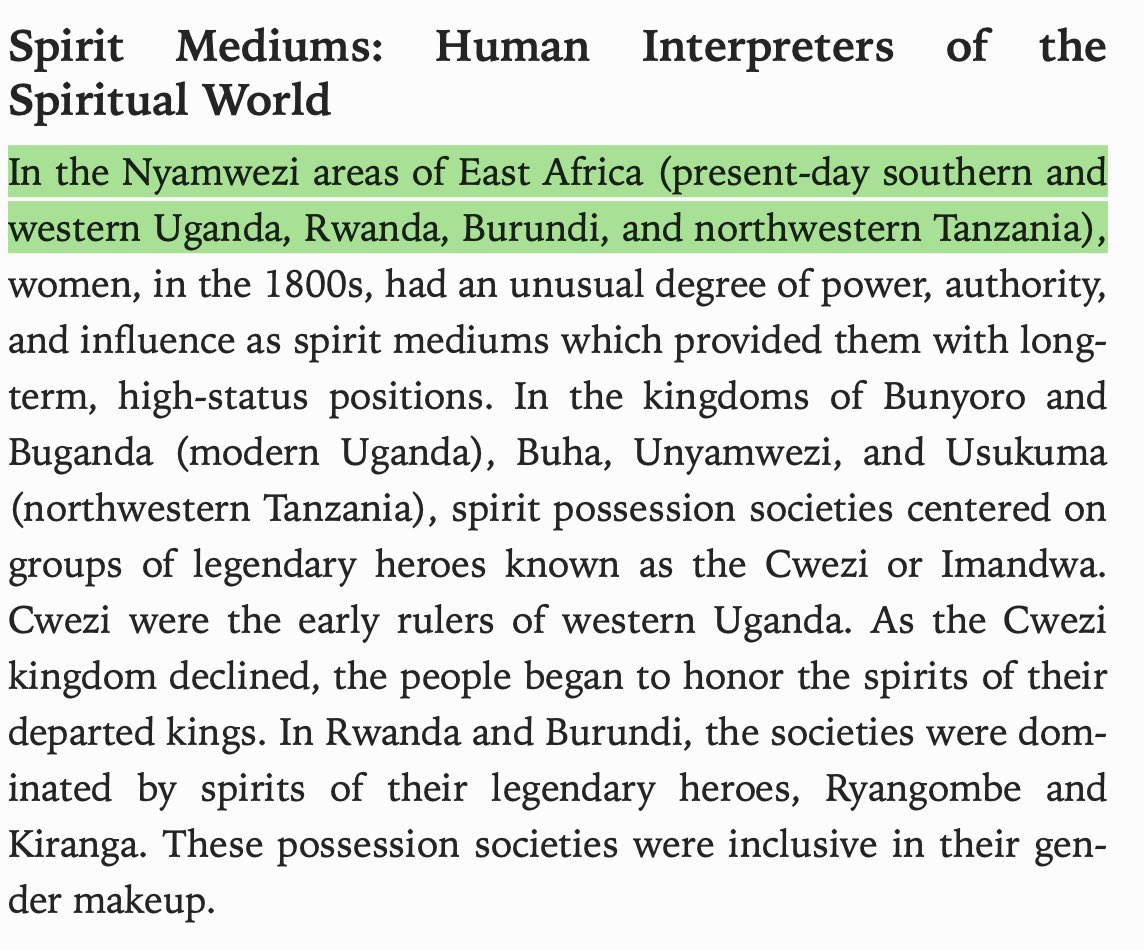
> 
> 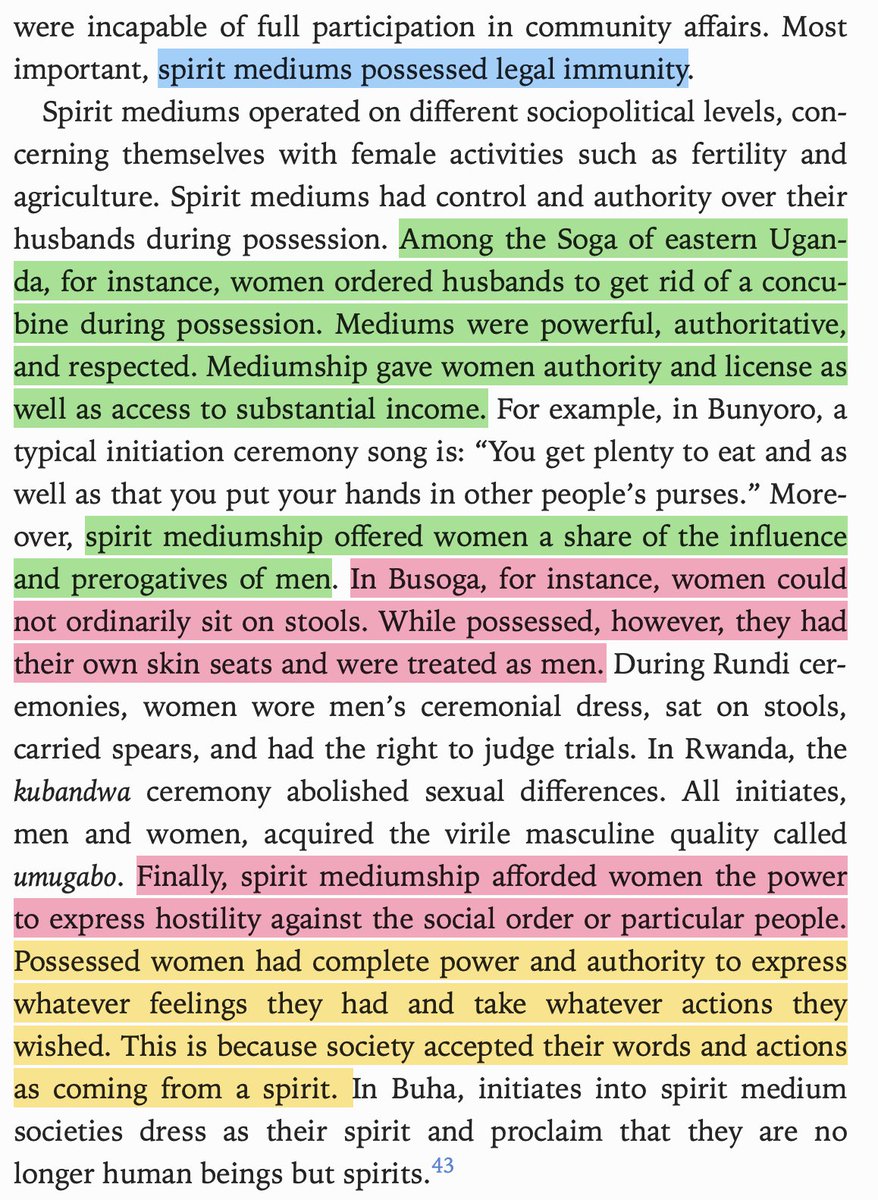
- [View Tweet](https://twitter.com/_alice_evans/status/1474013566009319430)
### id265960347
> African male and female monarchs ruled jointly.
> In Nigeria, the queen of the ladies represented other women.
> (Btw, this idea of separate spheres (where respected, senior women govern juniors) has parallels with the Bemba in Southern Africa and Andean communities).
> 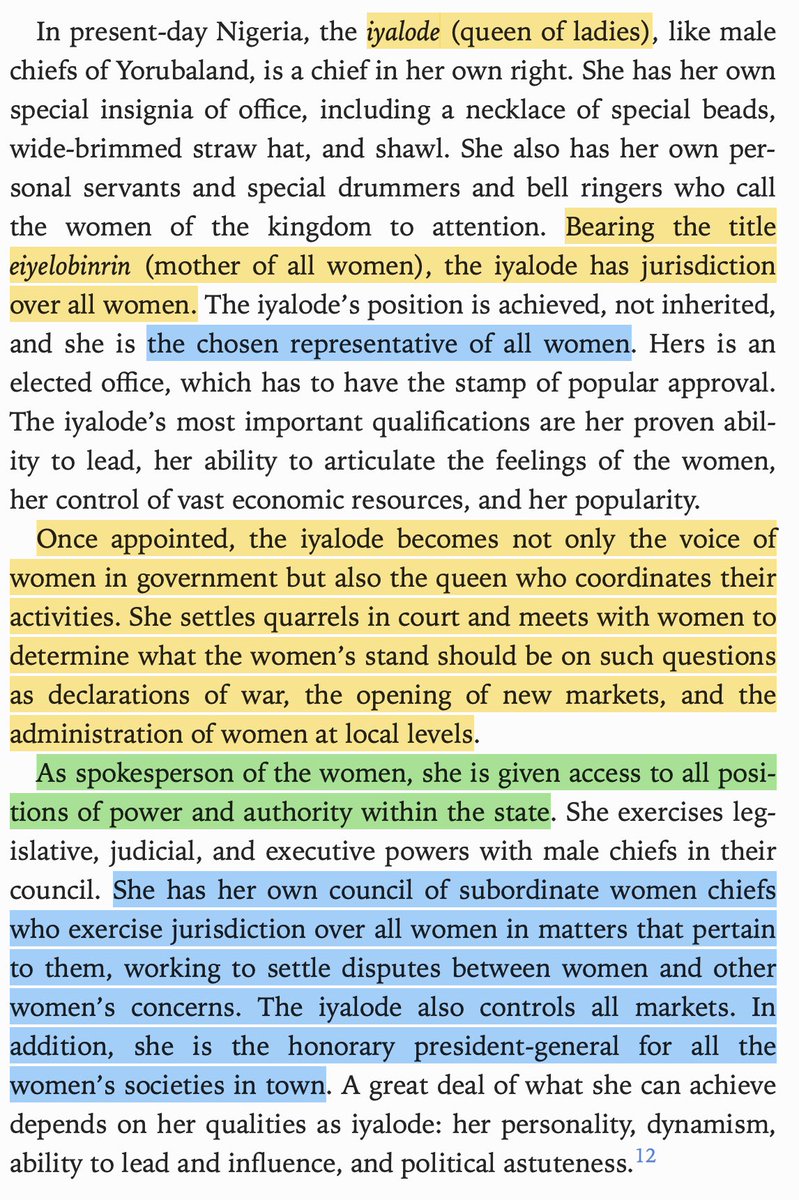
- [View Tweet](https://twitter.com/_alice_evans/status/1474013573651353603)
### id265960348
> “Berber warrior queens!”
> (Let me add, this is VERY IMPORTANT:
> 1) Pastoralism *is* associated with female seclusion and honour cultures, but the association is small & there is still huge unexplained variation.
> 2) Militarism doesn’t necessarily exacerbate son presence)
> 
- [View Tweet](https://twitter.com/_alice_evans/status/1474014631521890308)
### id265960349
> TANGENT: the Maghreb is presently more gender equal than the rest of MENA, with higher FLFP & more gender equal legislation.
> Why?
> - European influence?
> - No oil? More labour intensive industries?
> - Authoritarians seeking legitimacy?
> @NwandoAchebe highlights ancestral culture.
> 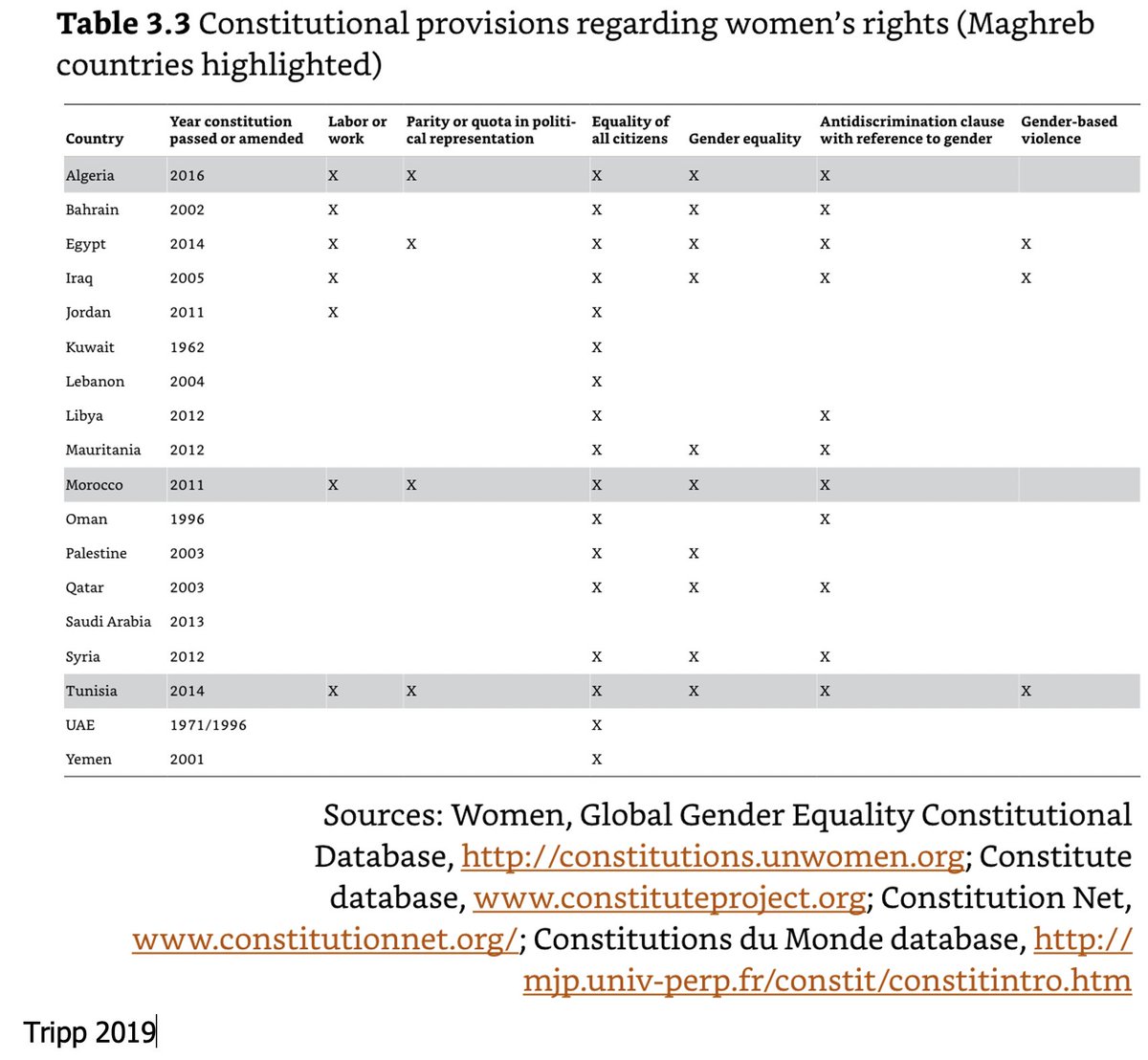
> 
> 
- [View Tweet](https://twitter.com/_alice_evans/status/1474018490080284676)
### id265960350
> Another tangent:
> Some feminist archaeologists of Southern Mesopotamia speculate that city states warred they needed male fighters, and this militarism spawned son preference.
> Yet @NwandoAchebe's incredible research shows that women can be recognised as fighters!
> 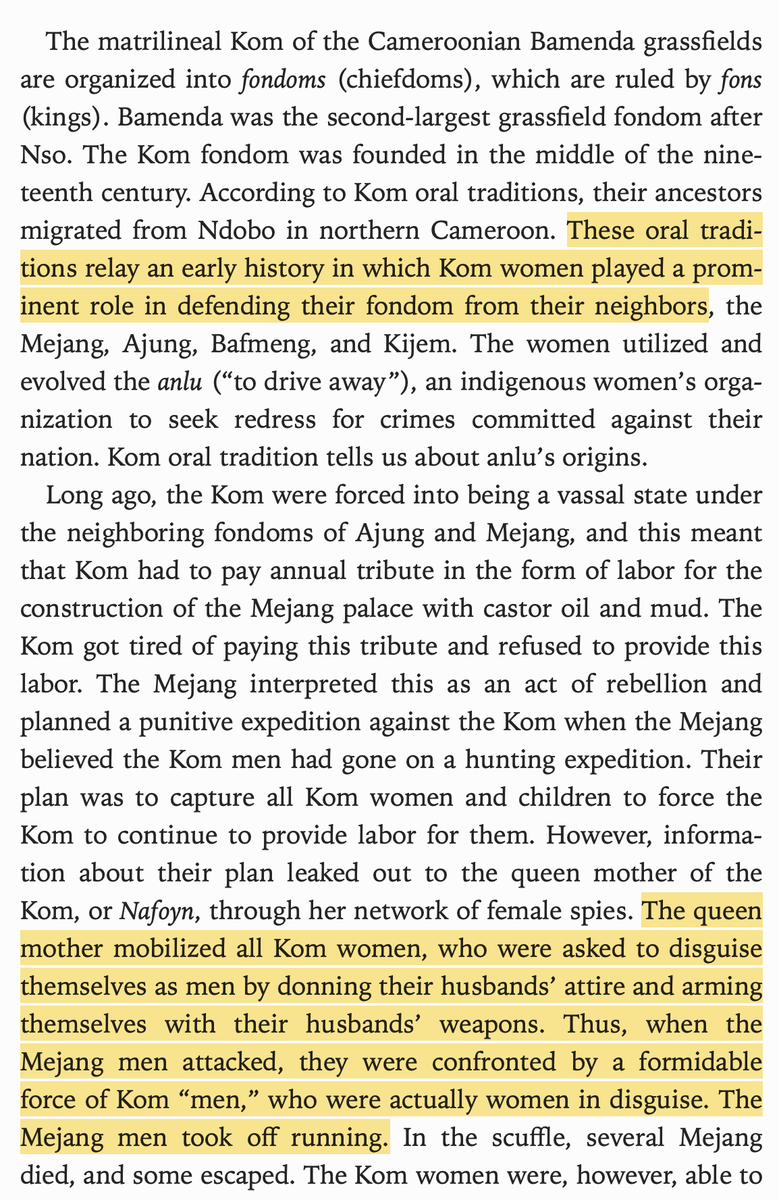
> 
- [View Tweet](https://twitter.com/_alice_evans/status/1474019878533312515)
### id265960351
> Europe also had queens, ofc.
> But government, the judiciary, law, medicine, and universities were monopolised by men.
> That sharply contrasts with the Asante. The queen mother not only exercised power but called on fellow women to fight the British.
> 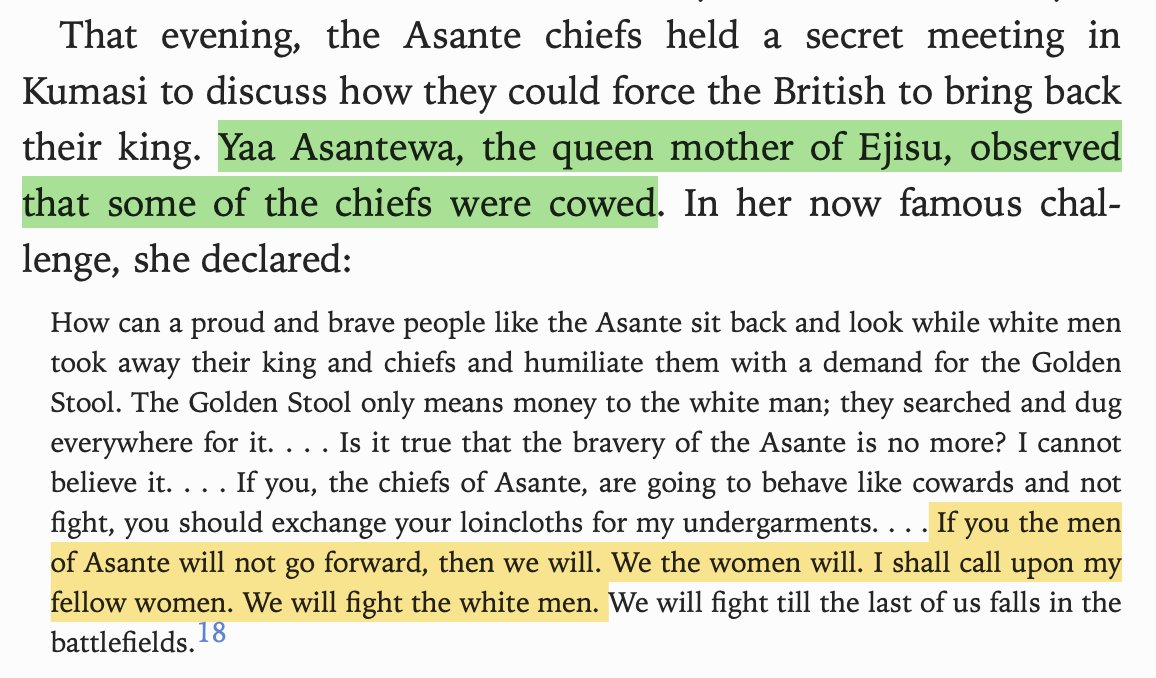
- [View Tweet](https://twitter.com/_alice_evans/status/1474021427032608778)
### id265960352
> So in patrilineal Eurasia, men governed everyone.
> But bilateral or matrilineal societies in Sub-Saharan Africa and South America, recognised
> 1) Gender complementarity, recognising women's insights.
> 2) Parallel spheres of influence. Women governed other women.
> 
- [View Tweet](https://twitter.com/_alice_evans/status/1474022221039427586)
### id265960353
> The Asante queen mother "maintains independent jurisdiction over all domestic matters affecting women and members of the royal family".
> (Europe was far behind Africa - in terms of respect for women's insights, analysis and moral judgement).
> 
- [View Tweet](https://twitter.com/_alice_evans/status/1474023279254020098)
### id265960354
> Reading @NwandoAchebe, one finds many historical examples of Black Panther's portrayal of autonomous princesses and ferocious warriors!
> 
> 
> 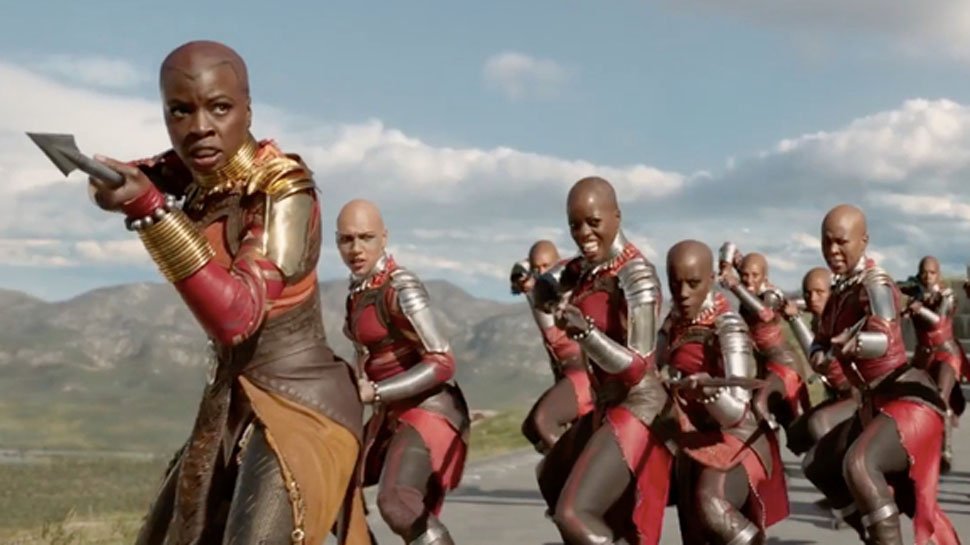
> 
- [View Tweet](https://twitter.com/_alice_evans/status/1474027690554503178)
### id265960355
> Key to gender equality is not one prominent woman
> but rather networks of solidarity and social capital amongst women
> and that's precisely what happened in Igboland
> 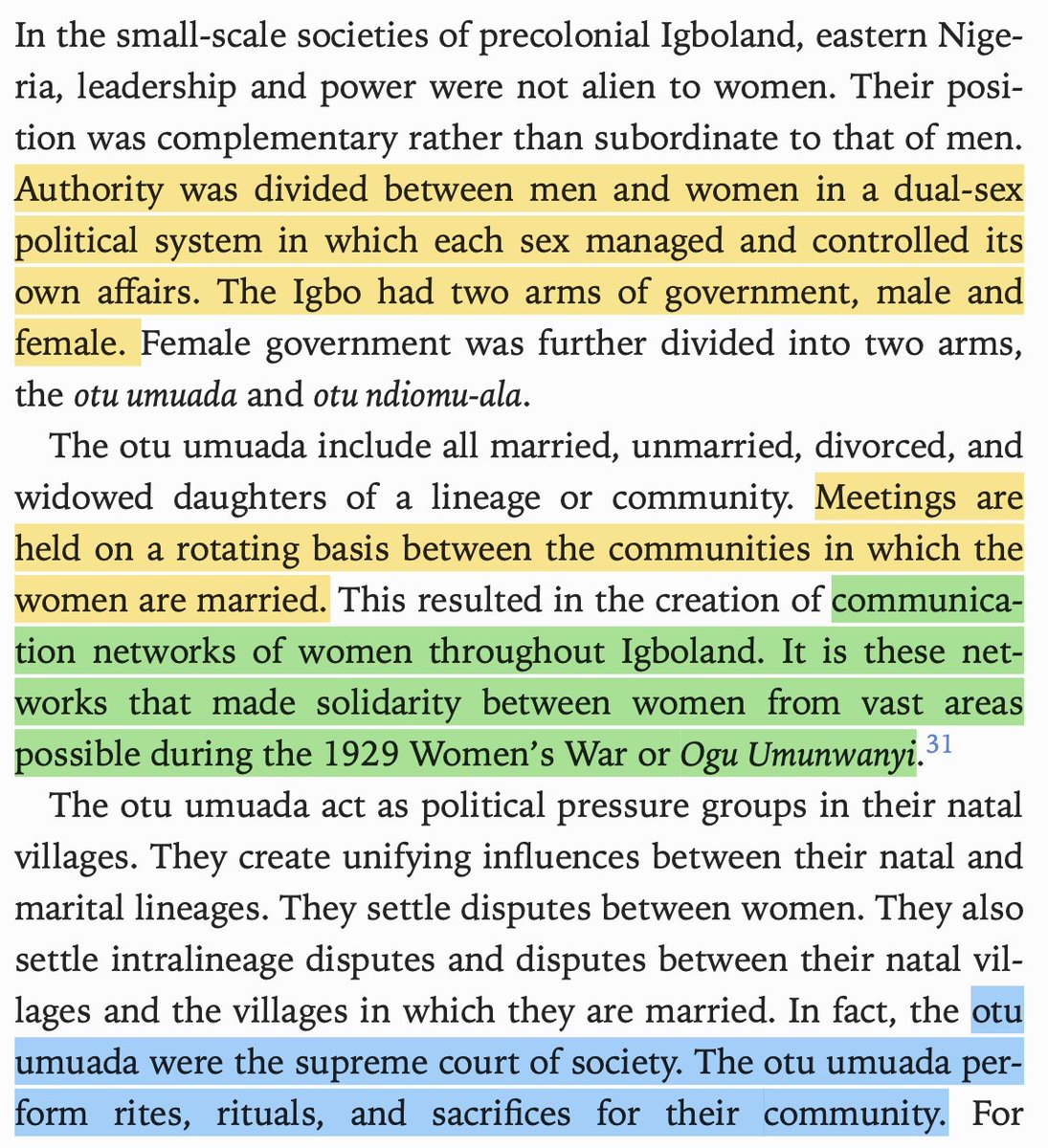
- [View Tweet](https://twitter.com/_alice_evans/status/1474028531952893954)
### id265960356
> In South Asia and the Middle East, wealthy women were historically often cloistered, to preserve lineage purity and collective honour. That kept women divided.
> But Igbo women's strong networks of solidarity and parallel spheres of governance enabled them to protect each other.
> 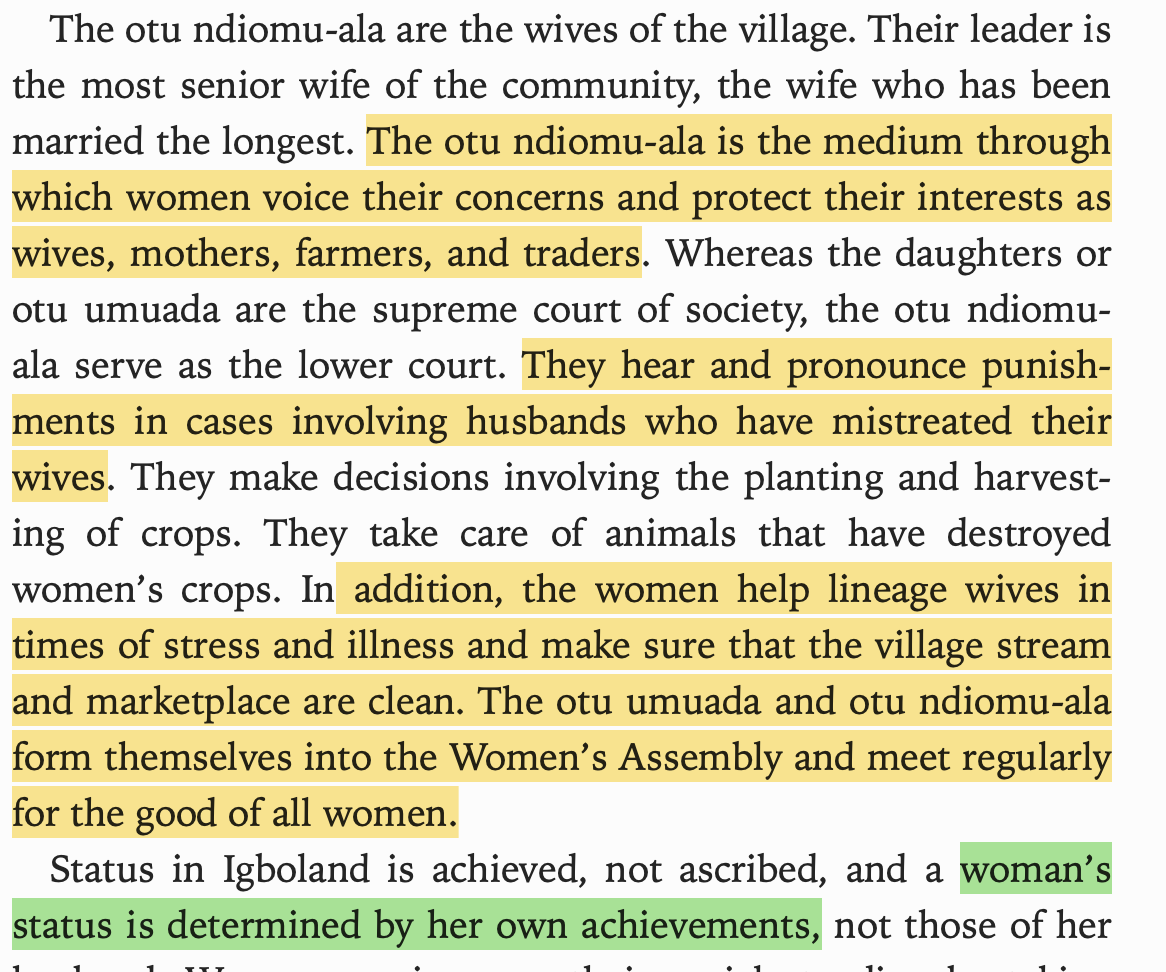
- [View Tweet](https://twitter.com/_alice_evans/status/1474029678402932738)
### id265960357
> China, Japan and South Korea today all have high rates of female employment.
> But they lack an essential ingredient of gender equality, which Igboland had long ago:
> Female governance.
> Women organised the market, and acted as a court.
> 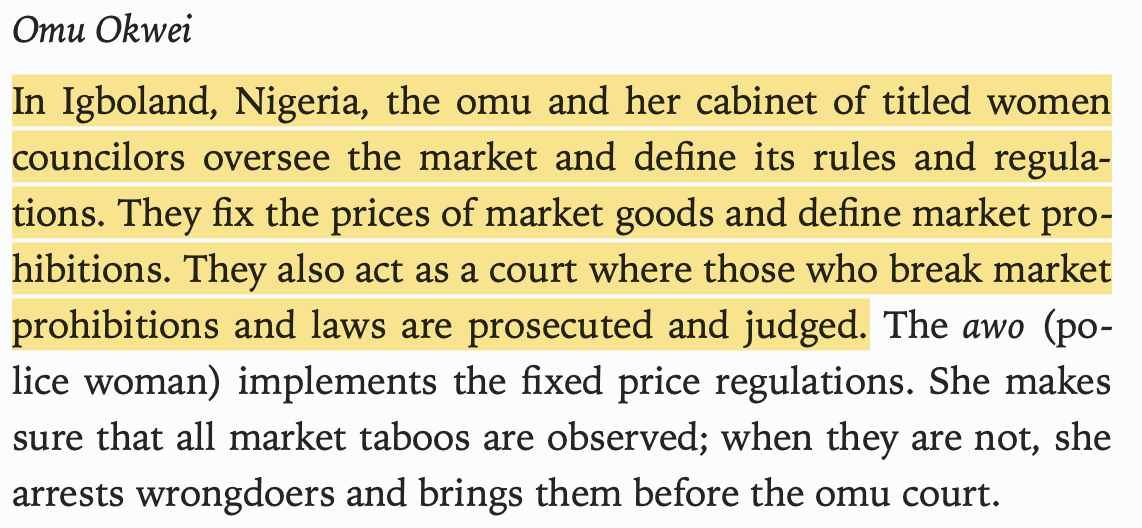
- [View Tweet](https://twitter.com/_alice_evans/status/1474033299219701765)
### id265960358
> This is an interesting perspective on polygamy!
> Was it really characterised by 'cooperation and solidarity'?
> I have a question for @NwandoAchebe,
> I wonder what she makes of research pointing to jealousy and animosity between co-wives, sharing a husband?
> 
- [View Tweet](https://twitter.com/_alice_evans/status/1474035148282744832)
### id265960359
> (Also not mentioned yet, perhaps it is discussed later in the book, is female genital mutilation.
> I would be keen to hear @NwandoAchebe's perspective on why this developed in some places but not others).
> 
- [View Tweet](https://twitter.com/_alice_evans/status/1474035854620377099)
### id265960360
> Edmond Smith has a new book out this year “Merchants”.
> Spoiler: they’re all men.
> English women did hawk at markets and run shops, but few travelled long distances.
> Now! Contrast that with female support networks who travelled in bands to Igalaland to trade fish.
> 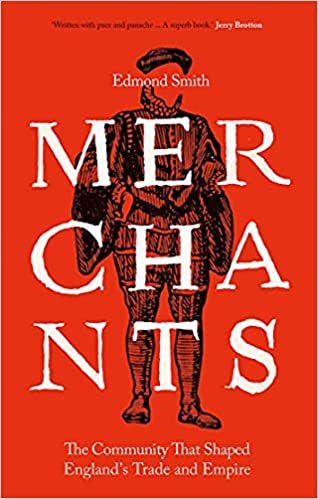
> 
- [View Tweet](https://twitter.com/_alice_evans/status/1474037044292767750)
### id265960361
> Personally, I think this is a really important observation.
> It suggests that biology was not destiny.
> Eurasian women were kept closer to the home NOT because we lacked contraception/ time-saving engines of liberation like washing machines.
> But rather due to culture.
- [View Tweet](https://twitter.com/_alice_evans/status/1474038621825028096)
### id265960362
> The book details that West African markets are governed by women.
> 🙋♀️ I'm eager to learn from @NwandoAchebe
> Has it always been like this?
> Why didn't it occur so much in East or Southern Africa?
> To what extent is this correlated with other dimensions of gender equality?
> 
- [View Tweet](https://twitter.com/_alice_evans/status/1474040631974629389)
### id265960363
> The book presents many examples of parallel gender spheres, autonomous women, and warriors.
> Those practices and the cosmology suggests broad respect for female governance across the continent
> So i'm curious why female-run markets might be unique to West Africa?
- [View Tweet](https://twitter.com/_alice_evans/status/1474042035262955520)
### id265960364
> Achebe offers an interesting hypothesis:
> Polygamy meant that some co-wives stayed behind, while others travelled more broadly.
> Now here's Fenske's map of polygamy.
> Paging @DrNathanNunn: what's the relationship between polygamy and female-run markets?
> Is it a coincidence?
> 
- [View Tweet](https://twitter.com/_alice_evans/status/1474045726669824011)
### id265960365
> Though I should add, using a slightly different definition of polygamy, Becker suggests a different spread, which does not correlate with West African female-run markets, at least not today.
> https://t.co/1Q0acP9nPy
- [View Tweet](https://twitter.com/_alice_evans/status/1474046173262581763)
### id265960366
> Could someone clever map female-run markets across Africa and investigate possible drivers?
> icymi: Marie Demie finds that tuber-growing societies have higher FLFP and less tolerance of wife beating.
> (I suspect this is bc they were less stratified).
> https://t.co/5LX8UFbsf5
> 
- [View Tweet](https://twitter.com/_alice_evans/status/1474049849851092994)
### id265960367
> Another question for @NwandoAchebe
> When studying cosmology, folklore, and language,
> Do you find more patriarchal practices amongst African societies that practiced caste (with rigid endogamy, hierarchy, inherited occupations & pollution)?
> https://t.co/zSYJvLmPWv
> 
- [View Tweet](https://twitter.com/_alice_evans/status/1474061094918447112)
### id265960368
> @NwandoAchebe's book shows examples of female leadership across the continent.
> Southern Africa still has exceptionally high rates of women in parliament and the judiciary.
> But in West Africa, women only represent 16% of parliamentarians.
> Why do they differ?
> 
> 
> 
- [View Tweet](https://twitter.com/_alice_evans/status/1474063274262020097)
### id265960369
> The Global Gender Gap incorporates female employment, seniority, representation etc.
> As you can see, most regions are grouped:
> European countries score highly, then Latin America, then Eastern Europe, and MENA clusters at the lower end.
> But SSA countries appear very diverse.
> 
- [View Tweet](https://twitter.com/_alice_evans/status/1474068076392030219)
### id265960370
> The book details that African gender is “flexible”:
> Women have occasionally occupied stereotypically male positions.
> I am curious to learn how common this fluidity was, and if it was common why were any positions stereotyped as ‘male’?
> 
> 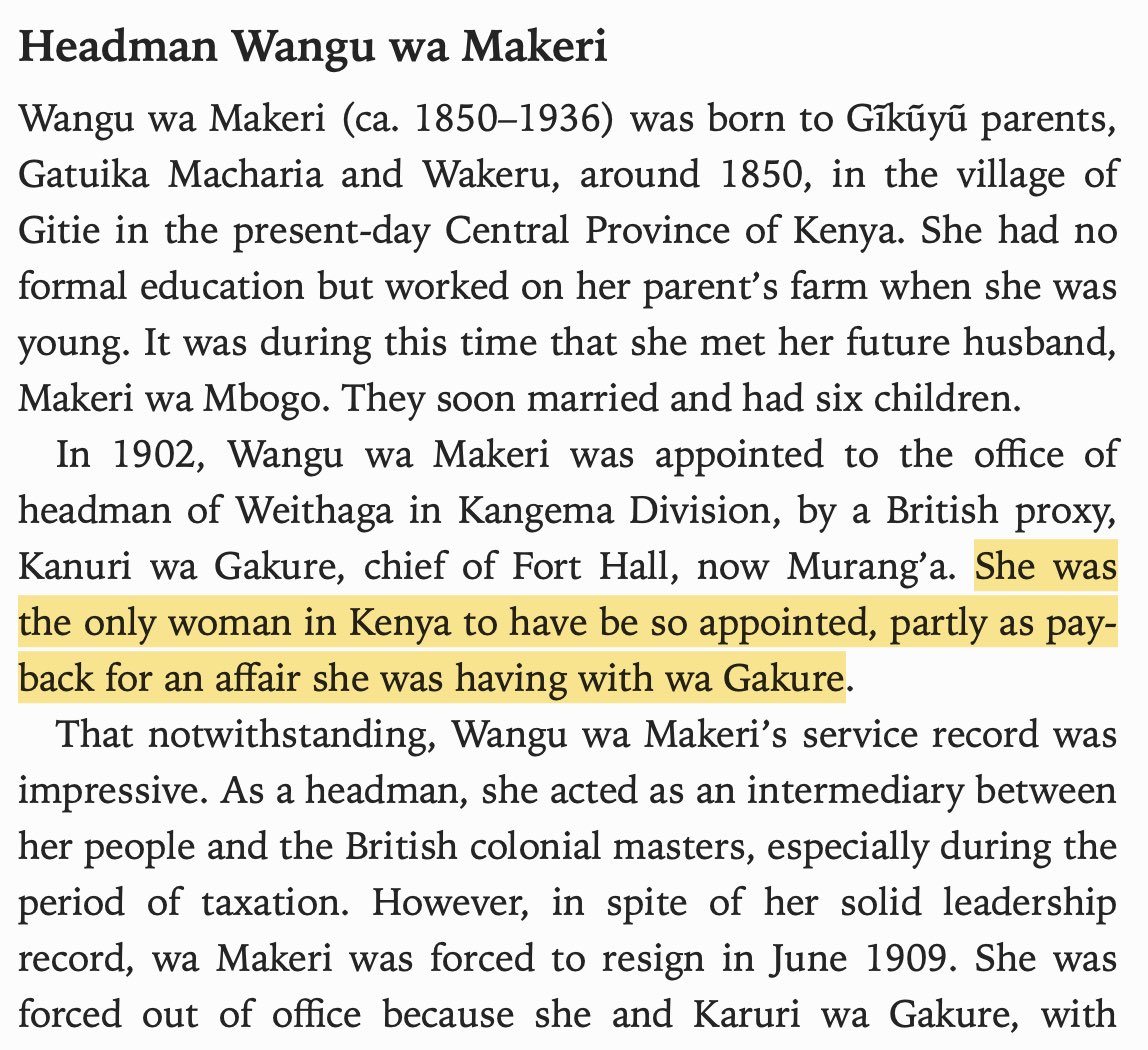
> 
- [View Tweet](https://twitter.com/_alice_evans/status/1474070895417348104)
### id265960371
> I must ask @NwandoAchebe about Nigeria!
> The south has far lower rates of child marriage but also very high rates of FGM.
> What explains Nigeria's north-south divergence?
> 
> 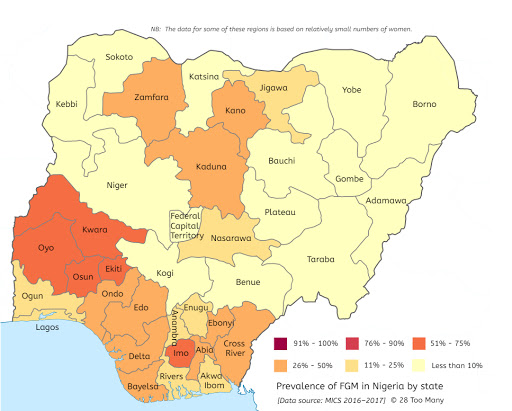
- [View Tweet](https://twitter.com/_alice_evans/status/1474075185473110024)
### id265960372
> Wow. I did not know this.
> Ghana has the highest percentage of women business owners worldwide, Uganda comes third.
> 
- [View Tweet](https://twitter.com/_alice_evans/status/1474076011759341576)
### id265960373
> (Though I should add, the vast majority of “businesswomen” in Sub-Saharan Africa are “own account workers”, not “employers”)
> https://t.co/yVfGFOvpD0
> 
- [View Tweet](https://twitter.com/_alice_evans/status/1474076413301043201)
### id265960374
> Let me summarise!
> Many African societies were historically characterised by gender complementarity:
> - women governed other women,
> - were worshipped as goddesses,
> - ran markets & long-distance trade
> - mobilised vast armies &
> - feigned spirit possession to disrupt hierarchies
- [View Tweet](https://twitter.com/_alice_evans/status/1474077547889631238)
### id265960375
> I have a thousand questions for the brilliant @NwandoAchebe and I’m so looking forward to our podcast.
> But for now let me strongly recommend the book, it’s absolutely fascinating, and will definitely rock your priors! 🤩
- [View Tweet](https://twitter.com/_alice_evans/status/1474078053701718023)
### id265960376
> IF you are interested in my hypothesis about why Sub-Saharan Africa was historically relatively gender equal, and what undermined matrilocality, see:
> https://t.co/eWOnnUf6X4
- [View Tweet](https://twitter.com/_alice_evans/status/1474079264567930886)
### id265960377
> In my ideal world, someone clever would use this data on female queens, goddesses, market-governance, and warriors to spatially map the heterogeneity in gender relations across Africa.
> Are West Africa's female-run markets associated with other indicators of gender equality?
- [View Tweet](https://twitter.com/_alice_evans/status/1474299608717316136)
### id265960378
> To me, the West African conundrum is the conjunction of male-dominated parliaments & female-run markets.
> Was the region historically extremely gender equal in ALL respects?
> Or did women only run markets?
> (perhaps enabled by polygamous co-wives out-sourcing care-giving?)
> 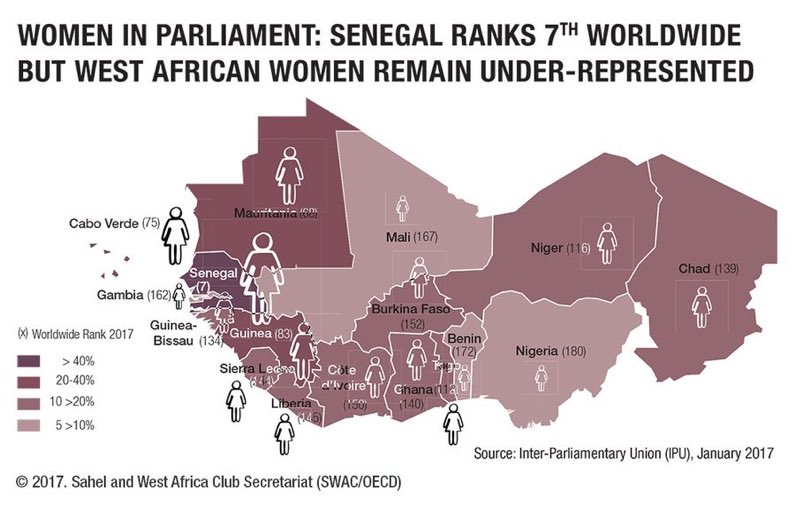
- [View Tweet](https://twitter.com/_alice_evans/status/1474321588778590208)